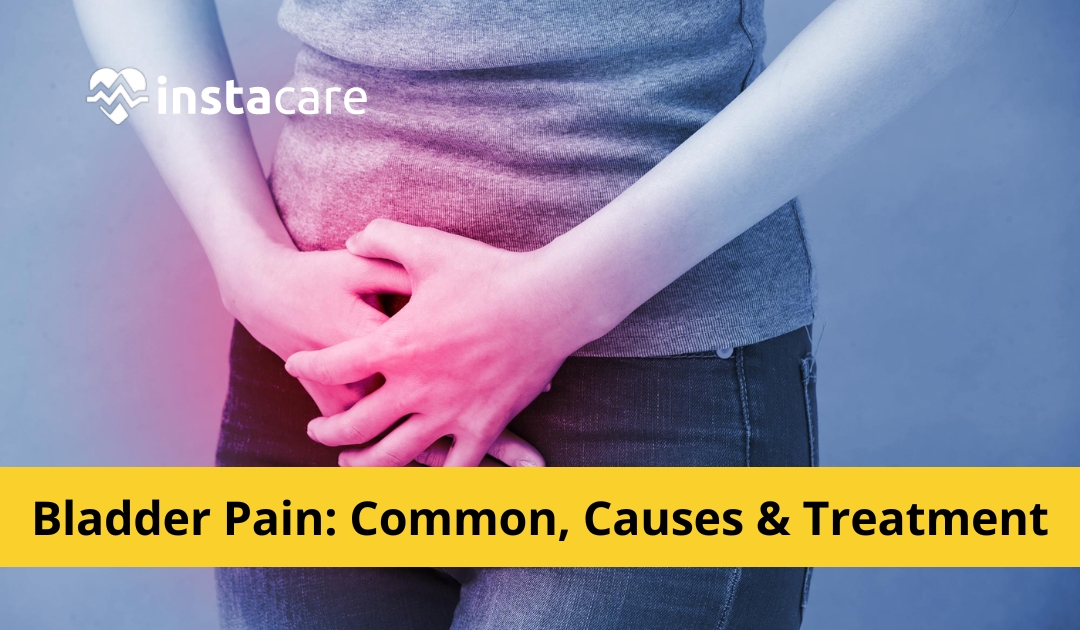Bladder pain is a common condition that affects many people worldwide. It can be a debilitating and uncomfortable experience that can interfere with daily activities, decreasing quality of life. Bladder pain can range from mild to severe and acute or chronic, depending on the underlying cause. The pain can be accompanied by a frequent urge to urinate, burning during urination, and cloudy or bloody urine.
Bladder pain can have various causes, including urinary tract infections (utis), bladder infections, bladder stones, interstitial cystitis (ic), overactive bladder (oab), bladder cancer, radiation therapy, pelvic floor muscle spasms, endometriosis, and prostatitis. Identifying the underlying cause of bladder pain is crucial to provide appropriate treatment and prevent the condition from worsening.
Treatment for bladder pain depends on the underlying cause and may include antibiotics, pain relievers, medication to relax the bladder muscles, lifestyle changes, pelvic floor physical therapy, or surgery. Early intervention is essential to manage bladder pain effectively and prevent the condition from causing further discomfort and complications.
This blog will explore the causes, symptoms, diagnosis, and treatment options for bladder pain to help individuals understand this condition and seek proper medical attention. Understanding bladder pain can provide relief for individuals experiencing this condition and improve their overall quality of life.
What is bladder pain?
Bladder pain refers to discomfort or pain in the bladder, a muscular sac in the pelvis that stores urine. The pain also can be mild or severe and can occur suddenly or gradually. It can also be chronic, meaning it lasts for an extended period.
View More: Left Upper Quadrant Pain - Causes Symptoms And Treatment
What causes bladder pain?
Bladder pain can be caused by a variety of factors,
including:
- Urinary tract infections (utis)
- Bladder infections
- Bladder stones
- Interstitial cystitis (ic)
- Overactive bladder (oab)
- Bladder cancer
- Radiation therapy
- Pelvic floor muscle spasms
- Endometriosis
- Prostatitis
What are the symptoms of bladder pain?
The symptoms of bladder pain can vary depending on the
underlying cause. Some common symptoms include:
- Pain or discomfort in the lower stomach or pelvic area
- A frequent urge to urinate
- Pain or burning during urination
- Cloudy or bloody urine
- Pain during sexual intercourse
- Difficulty emptying the bladder
- Incontinence
How is bladder pain diagnosed?
To diagnose bladder pain, a healthcare provider will perform a physical examination and also may order tests such as a urine culture, bladder ultrasound, or cystoscopy (a procedure that allows the doctor to see inside the bladder using a thin tube with a camera). Sometimes, a referral to a urologist or gynecologist may be necessary.
During the physical examination, the healthcare provider also indeed will check for tenderness or pain in the pelvic area and ask about the symptoms and medical history. A urine culture can help identify the presence of bacteria in the urine, indicating a bladder infection. Bladder ultrasound can detect bladder stones, tumors, or other abnormalities causing bladder pain. Cystoscopy can help identify the presence of bladder inflammation or any abnormal growths. If the underlying cause of bladder pain is unclear, a referral to a specialist may be necessary to provide further evaluation and treatment.
View More: What Is Epigastric Pain - Causes And Treatment
What are the treatment options for bladder pain?
The treatment for bladder pain will depend on the underlying
cause. Some standard treatment options include:
- Antibiotics to treat bacterial infections
- Pain relievers to manage discomfort
- Medications to relax the bladder muscles
- Lifestyle changes also, such as avoiding certain foods or
beverages that irritate the bladder
- Pelvic floor physical therapy to strengthen muscles and
improve bladder control
- Surgery to remove bladder stones or cancerous tissue
Conclusion
Bladder pain can be challenging, but it can be effectively managed with proper diagnosis and treatment. It is essential to seek medical attention also if you experience any symptoms of bladder pain to identify the underlying cause and receive appropriate treatment. Remember, early intervention can prevent the condition from worsening and help you feel better sooner. Deep breathing can help manage stress and prevent bladder pain.
Please book an appointment with the best Orthopedic Surgeon in Lahore, Karachi, Islamabad, and all major cities of Pakistan through InstaCare, or call our helpline at 03171777509 to find a verified doctor for your disease.


